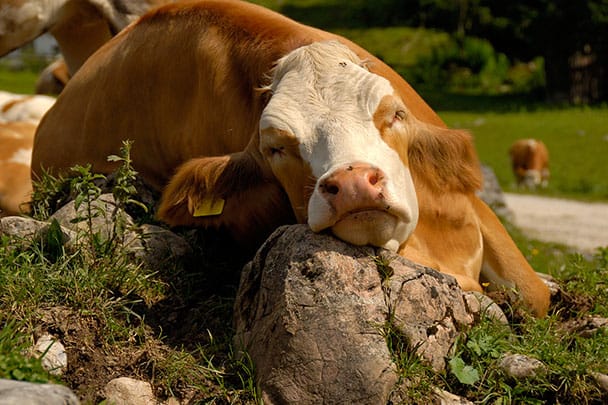We can also use gerunds and infinitives in the perfect tense. Do you remember what the perfect tense is?
| Present Tense | I eat lunch. |
| Present Perfect | I have eaten lunch. |
Just like with normal perfect forms, perfect gerunds and infinitives are used to show differences in time between two events.
In this case, the event shown by the gerund or infinitive always comes first. The event shown by the main verb always comes second.
Perfect gerunds are formed using: 'having' + past participle

He denied having broken the vase.
(The vase was broken first, then he denied it.)

I remember having seen a bird's nest somewhere here.
(I saw it first, then I remembered it.)

After having eaten all of the grass, Bessie took a nap.
(She ate all the grass first, then she took a nap.)
Sometimes we can choose between using perfect gerunds and just basic gerunds. For example, 'After having eaten all the grass, she took a nap' could also be 'After eating all the grass, she took a nap.' Often, you can make these changes without changing the meaning of the sentence, and the sentence is simpler.
Perfect infinitives are formed using: 'to have' + past participle

He is reported to have earned millions this year!
(He earned the money first, then it was reported.)

They claim to have found some buried treasure.
(They found the treasure first, then they claimed it.)

I am happy to have found my lost dog.
(I found my dog first, then I was happy about it.)
Again, sometimes the perfect infinitive is unnecessary, and you have just use the simple infinitive form.
Exercise
Please open the exercise to continue.